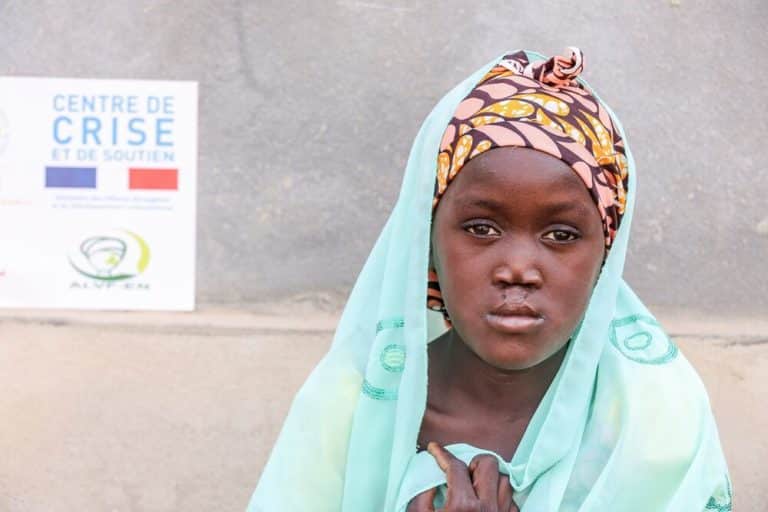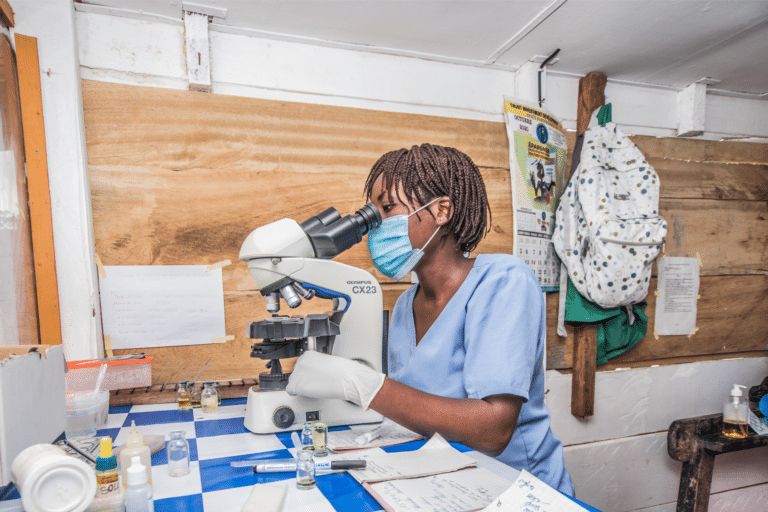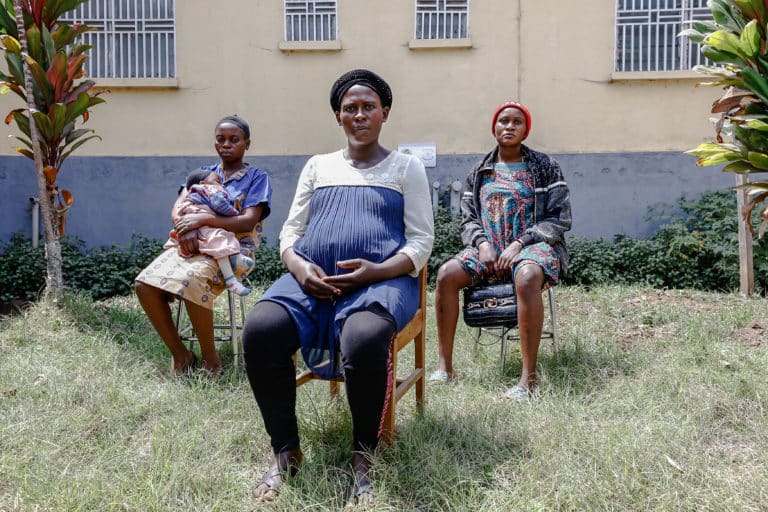In sub-Saharan Africa, pneumonia is one of the leading causes of death in children under 5 years of age, most of which are related to misdiagnosis or delayed diagnosis of respiratory distress. This highlights the need for improved diagnosis, in order to identify cases in children at an earlier stage.
ALIMA The Alliance for International Medical Action, with funding from Unitaid and in partnership with Terre des hommes, Solthis and the French National Institute of Health and Medical Research (Inserm), will work closely with the Ministries of Health in these four countries to implement the AIRE project: “Improving the Identification of Respiratory Distress in Children.” This clear commitment by health authorities to improve child health in their countries came about as a result of collaboration with ALIMA and other partner organizations.
“The AIRE project offers us the opportunity to strengthen the technical capabilities of health facilities selected within the framework of the project, and above all, to take advantage of the pulse oximeter technology, so that during consultations with children, we can have the capacity to detect these respiratory diseases and ensure proper care,” said Dr. Lionel Wilfried Ouédraogo, Secretary General of Burkina Faso’s Ministry of Health.
Less well known than a thermometer, the pulse oximeter is a small device that, when attached to the finger, measures the amount of oxygen in the blood. It remains indispensable for detecting severe forms of respiratory distress, which are most often fatal. While initially the pulse oximeter was used only in hospitals in West Africa, the AIRE project aims to introduce its use in 202 primary health centers in the four countries covered by this initiative. Several research, training, and advocacy activities will be conducted in collaboration with health authorities, technical partners, and civil society organisations, to demonstrate the relevance of the pulse oximeter.
“We thank the Ministries of Health of Mali, Niger, Burkina Faso, and Guinea, the technical and financial partners, civil society organizations, and scientific committees for their presence at the various launch ceremonies,” said Marine Vignon, ALIMA’s AIRE Project Manager. “This is proof of their commitment to the fight to improve children’s health. The AIRE project aims to demonstrate the contribution of the pulse oximeter in the identification of severe respiratory distress, thereby saving the lives of countless children. We are fortunate to be able to hold these official launches despite the context of the COVID-19 pandemic, which reinforces the importance of improving the diagnosis and management of respiratory diseases.”
The AIRE project will make 247 pulse oximeters available in the four countries of intervention and provide equipment to eight referral hospitals, including oxygen concentrators, so that children suffering from respiratory distress can receive appropriate care.
The AIRE project was launched in July 2019
Cover photo: © Seyba Keita / ALIMA



